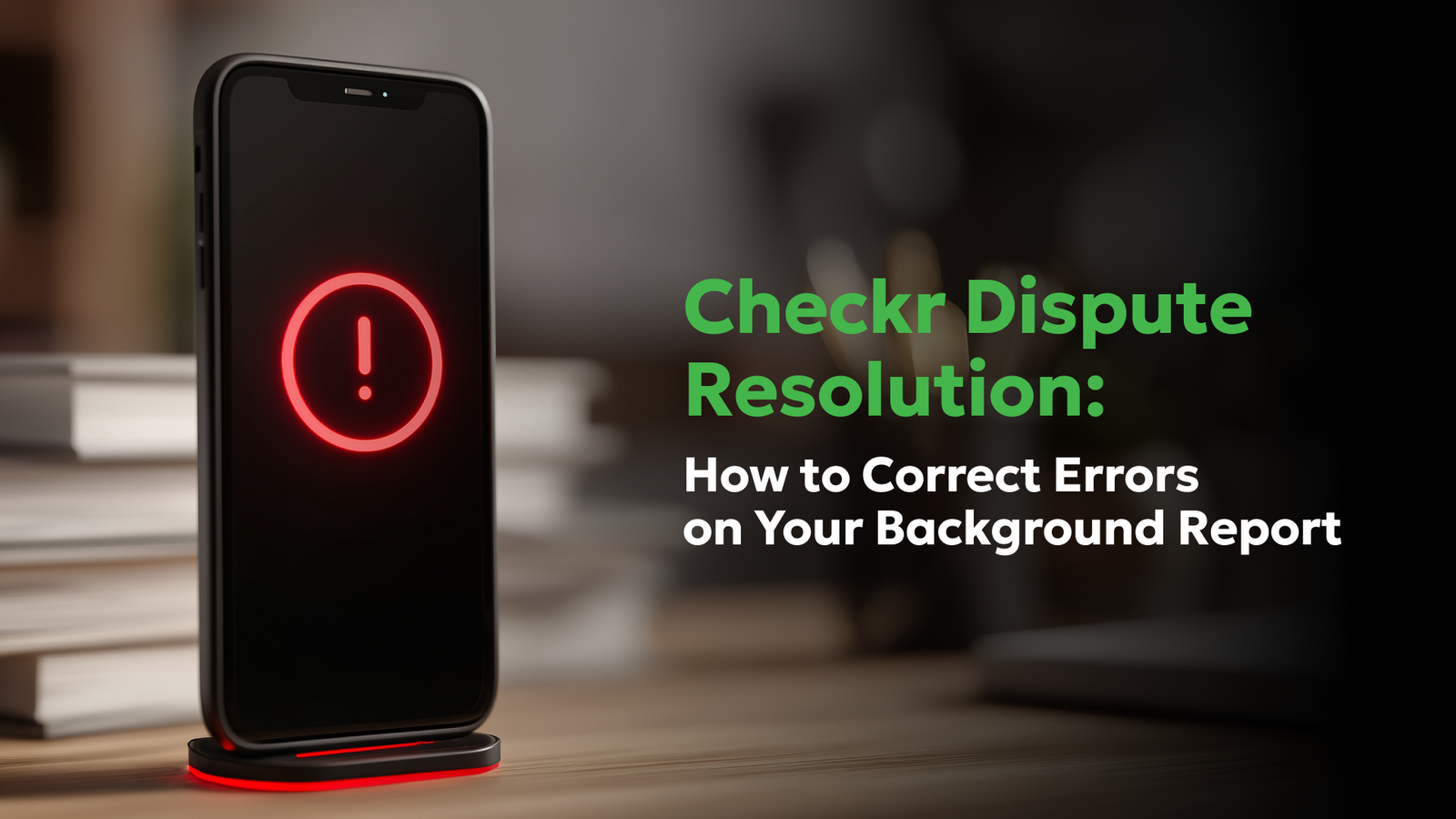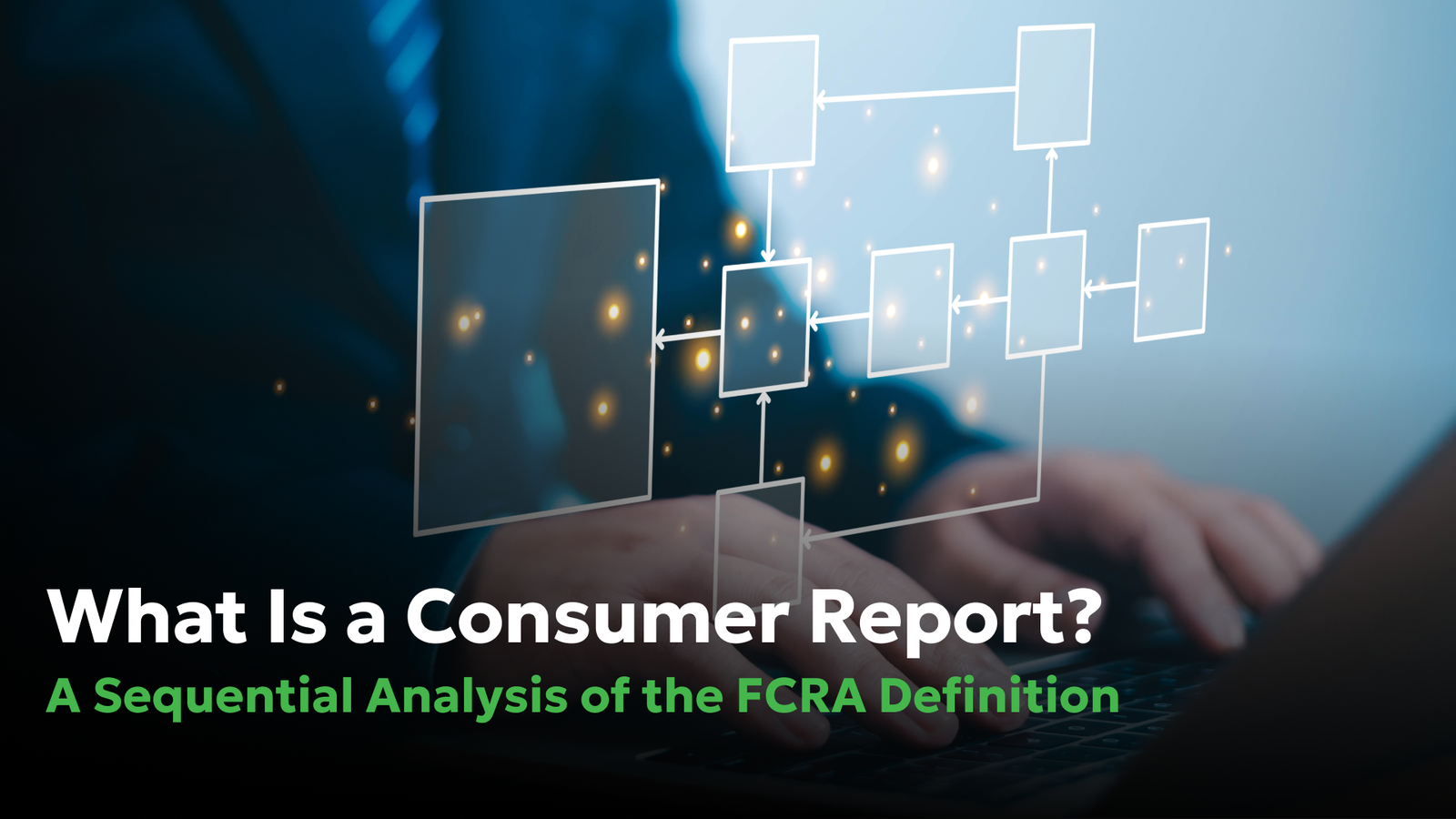Can You Pay a Mortgage with a Credit Card?
- Blog
- All about FCRA
Can You Pay a Mortgage with a Credit Card?

Sometimes, paying your mortgage with a credit card makes sense. See if it’s right for you and if so, how to do it the right way.
Ever wondered if you can pay your mortgage with a credit card? The rewards are enticing, but there are risks. The wrong method can result in more fees and potential credit risks. We explore the hurdles you might face and offer insights into this financial maneuver. While it’s not the right move for everyone - it just might be the right move for you.
There are many reasons you might want to pay your mortgage with your credit card. Some credit cards have very enticing rewards programs. Sometimes you can earn more interest on cash in your bank account. Sometimes you just need a little more time to pay the bills. Many things might compel a person to ask: “Can you pay your mortgage with a credit card?” The answer to this question is usually “it depends.” Is it possible to pay your mortgage with a credit card? Usually yes. It might take an extra step or two, and you might incur some extra fees, but those determined to do so can usually put a mortgage payment on a credit card. The next question consumers should ask is: should I put a mortgage payment on a credit card? The answer to that question requires some more analysis.
As attorneys for consumers, we think about little else than how credit card companies, credit reporting agencies, credit-related fraud, and debt in general affect consumers. We can’t advise everyone to pay their mortgage with a credit card, but in some instances, paying a mortgage with a credit card makes sense. What we do advise is to gather information from your credit card issuer and your mortgage lender and then carefully review and consider the implications of paying a mortgage with a credit card before you proceed.
How to Pay Your Mortgage with Your Credit Card
There are a few mortgage lenders that allow their borrowers to use a credit card to pay mortgage bills. You will need to contact your mortgage lender and ask if it accepts credit cards directly.
Most mortgage lenders do not permit their borrowers to pay their mortgages with a credit card. There are several reasons for this:
- Mortgage lenders must pay the credit card’s processing fees, which usually range between 1.5% and 3.5% of the amount charged.
- Additionally, some mortgage lenders do not want to encourage their customers to acquire more debt because it increases their own risk that their customers will default on their mortgages.
- Some mortgage lenders do not want to encourage their customers to acquire more debt just because of optics.
So the mortgage lender will enact a policy that prohibits borrowers from paying a mortgage payment with a credit card. However, if you are determined to pay your mortgage with a credit card, there are some ways to do so:
Third-Party Services
If you use PayPal, then you know how it works. It is a third-party service provider that facilitates payments from one party to another. If your mortgage lender permits it, you can use PayPal to pay your mortgage. Pay PayPal with a credit card and then PayPal pays the mortgage company.
But! Companies like PayPal will charge your card for the mortgage amount plus an additional fee, usually 2% - 3% of the transaction amount. The third-party servicer will then send a check or bank transfer to your mortgage lender. In essence, this allows you to pay your mortgage with a credit card but with the sometimes significant caveat that you’ll be adding 2% - 3% of your mortgage onto every transaction. It can be a convenient way to earn rewards (and many rewards very quickly!) on your card, but you must also balance those rewards with the additional service fees involved.
Buy Prepaid Gift Cards
Another strategy you might use to pay your mortgage with a credit card involves purchasing prepaid gift cards with your credit card and then using those cards to purchase a money order. You should then be able to use that money order to pay your mortgage. This maneuver requires a few extra steps and again, likely some extra fees, but if the mechanics of it work for you, then this is something you should consider as it is the equivalent of paying your mortgage with a credit card.
Note that not all prepaid gift cards will work for this purpose. It depends on where you buy money orders.
Purchase Money Orders
You can use some credit cards to directly purchase money orders and then use those money orders to pay your mortgage. This is the equivalent of paying your mortgage with a credit card.
However, many credit card issuers classify money order purchases as cash advances. Cash advances usually come with much higher fees and higher interest rates. If your credit card treats money orders as cash advances, then the expenses of this option might outweigh the benefits.
When Does Paying Your Mortgage with a Credit Card Make Sense?
Here are some scenarios when paying a mortgage through your credit card makes sense.
More Time to Pay Off
When financial hardship strikes, people look for ways to help them find more time to pay up. Hence, it isn’t shocking that people can pay their mortgages via credit card. A chance to pay your mortgage by credit card buys you some time and even allows you to pay a single mortgage payment for several months instead of just one single payment made from one significant monthly earning.
Meeting Spending Thresholds for Sign-Up Bonuses
One of the most compelling reasons to consider paying your mortgage with a credit card is to meet the spending requirements for a significant sign-up bonus. Many credit cards offer lucrative bonuses that require spending a certain amount within the first few months of opening the account. If you're confident in your ability to pay off the balance before interest accrues, using your card for a large, recurring expense like a mortgage can help you meet these thresholds more easily.
More Interest Earned on Cash
Nobody keeps a load of cash at home in a safe anymore. Instead, people open up accounts in banks that not only save their load of cash but allow them to earn interest. The longer your cash stays in the account, the more interest accumulates. Hence, people are reluctant to withdraw money from their bank accounts for bigger payments like mortgages, especially when a good amount of interest is due. That’s when paying with a credit card makes sense.
Maximizing Cash Flow Flexibility
There may be times when you need short-term cash flow flexibility due to unexpected expenses or timing mismatches between income and bills. Using a credit card for your mortgage payment can provide temporary relief, giving you a buffer until your next paycheck. However, this should be a rare exception rather than a regular practice, as it can lead to a cycle of debt if not managed carefully.
Earn Credit Card Reward Points
Making as big of a payment as your monthly mortgage payment through your credit card is bound to pay off with many credit card reward points. It works as a great savings scheme, especially for equally hefty bills, if not more, like traveling, hotel stays, and hospitalizations. Therefore, credit card mortgage payments allow you more time to pay off while you enjoy reward points.
To Avoid Foreclosure
Foreclosure is a legal process that gives your lender the power to recover a certain amount owed on a defaulted loan by taking over ownership of your mortgaged property. Naturally, if your mortgage is on credit, it automatically rids you of any sort of foreclosure whatsoever. That doesn’t mean you should misuse this aspect in your favor. However, it gives you a fair advantage over someone likely to take advantage of you via a loan.
Considerations When Opting for Credit Card Payments for Your Mortgage
Before using your credit card to pay your mortgage, you must consider the following:
Weighing Fees Against Rewards
Third-party service fees or the fees associated with buying money orders can be significant and offset or even negate any rewards you earn from paying your mortgage with a credit card. Make the calculations and do the arithmetic and then determine whether the rewards points, the cashback, the miles, or the other rewards you’ll earn will outweigh the fees you'll pay.
Evaluating the Cost of Interest
If you're unable to pay off your credit card balance in full, the interest on the mortgage payment could quickly outweigh any benefits you get from the card’s rewards especially since credit card interest rates are typically much higher than mortgage rates.
Impact on Your Credit Scores
Using such a large portion of your available credit can dramatically increase your credit utilization ratio and potentially lower your credit score. High balances, even if paid off each month, can affect your creditworthiness.
A federal law called the Fair Credit Reporting Act (FCRA) governs what credit reporting companies can report and how they report it. We have filed hundreds of lawsuits against credit reporting companies for violating the FCRA. But, for instance, when you make a mortgage payment or pay a mortgage deposit with a credit card, the huge sum shows up on your credit report, which is accurately reported by the credit reporting agencies and negatively affects your creditworthiness. (You may be asking, “are there any FCRA lawyers near me?” The attorneys at Consumer Attorneys practice all over the United States.)
Paying Your Mortgage with a Credit Card – Is It Worth It?
While paying your mortgage with a credit card can offer rewards and short-term cash flow benefits, we encourage you to consider the long-term implications. The fees and potential interest costs can outweigh the rewards. Additionally, the impact on your credit scores could be detrimental to your overall financial well-being, especially if you are planning to make a major purchase soon and need a loan.
You should approach this strategy with caution and be sure that the rewards are greater than the costs and the risks.
We Are Here to Help!
If you’re considering using your credit card to pay your mortgage or if you've encountered issues with credit card debt, our consumer law firm is ready to assist. We can guide you in managing your credit card use, dealing with your debt, and understanding your rights as a consumer. Remember, while innovative financial strategies can be beneficial, they require careful consideration and responsible management to ensure they don't lead to long-term financial challenges. We can help you determine if this is a smart move and, as always, help you should anyone ever violate your consumer rights.
Contact us by:
- Emailing us at info@consumerattorneys.com to request a meeting with an attorney.
- Calling us at 1-877-615-1725.
Unlike other attorneys, consumer protection is 100% of our practice. We have helped thousands of people recover from credit card companies’ and credit bureaus’ mistakes. We would love to help you, too.
Frequently Asked Questions
Yes, there are typically fees associated with using a credit card to pay your mortgage. Since most mortgage lenders do not accept credit card payments directly, you will likely need to use a third-party payment service like PayPal to pay your mortgage. These third-party services will handle the transaction but will also charge a fee that usually ranges from 2% to 3% of the payment amount. This extra fee will reduce and might even cancel out any rewards earned from using your credit card. If your mortgage is $2000, is the additional $60 worth it? You must calculate the costs and benefits of this payment method and review the service’s fee structure and terms to make sure it makes sense.
You can get rewards and cashback benefits when you pay your mortgage with a credit card if your credit card issuer and your mortgage company allow it. Many consumers who accumulate and rely on miles, points, or cashback strategies like this strategy. However, you must weigh the benefits of the rewards with the drawbacks - drawbacks like extra fees and potential credit report risks. Sometimes large charges like mortgage payments can affect your credit utilization ratio and impact your credit score. While the rewards can be significant, some financial consequences might make the rewards not worth it.
The frequency with which you can make mortgage payments with a credit card depends on your mortgage lender’s policies and your credit card issuer’s terms. Some mortgage lenders do not allow direct credit card payments but do allow payments through third-party services. You will likely have to pay a fee to the third-party payers so regularly using a credit card for such large expenses will require you to carefully consider all the transaction fees, interest rates (if you’re not paying the card balance in full), and the potential impact on your credit score. Review the policies of your mortgage lender and card issuer and contact Consumer Attorneys for tailored legal advice.
Yes, different mortgage lenders have varying policies regarding credit card payments. Some permit direct mortgage payments with a credit card. However, most mortgage lenders prohibit direct credit card payments because the mortgage lender will have to pay the processing fees. Some mortgage lenders also don’t want to appear like they are encouraging their borrowers to accumulate debt. If you do not have the option of paying your mortgage with a credit card directly, consider a third-party payment service, like PayPal or Stripe. These services will charge a fee so you must calculate the rewards versus the costs before proceeding.
It depends. Those credit cards that offer substantial rewards, cashback, or points are likely more suitable for mortgage payments as long as the rewards outweigh the extra transaction fees that third-party services add worth it. You always have to balance the fees with the rewards to gauge if that method of payment is suitable. You also always have to verify the terms and potential fees with both the credit card and the third-party service before you put a mortgage payment on a credit card.


Daniel Cohen is the Founder of Consumer Attorneys. Daniel manages the firm’s branding, marketing, client intake and business development efforts. Since 2017, he is a member of the National Association of Consumer Advocates and the National Consumer Law Center. Mr. Cohen is a nationally-recognized practitioner of consumer protection law. He has a we... Read more
Related Articles




R
ONGS™You pay nothing. The law makes them pay.







